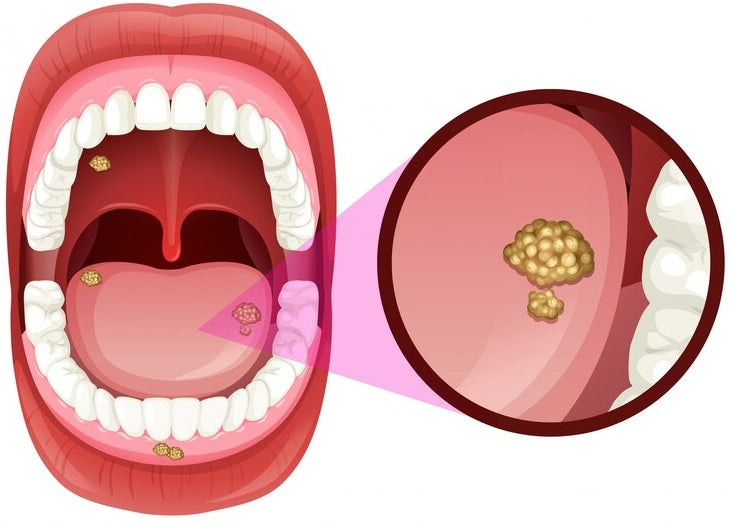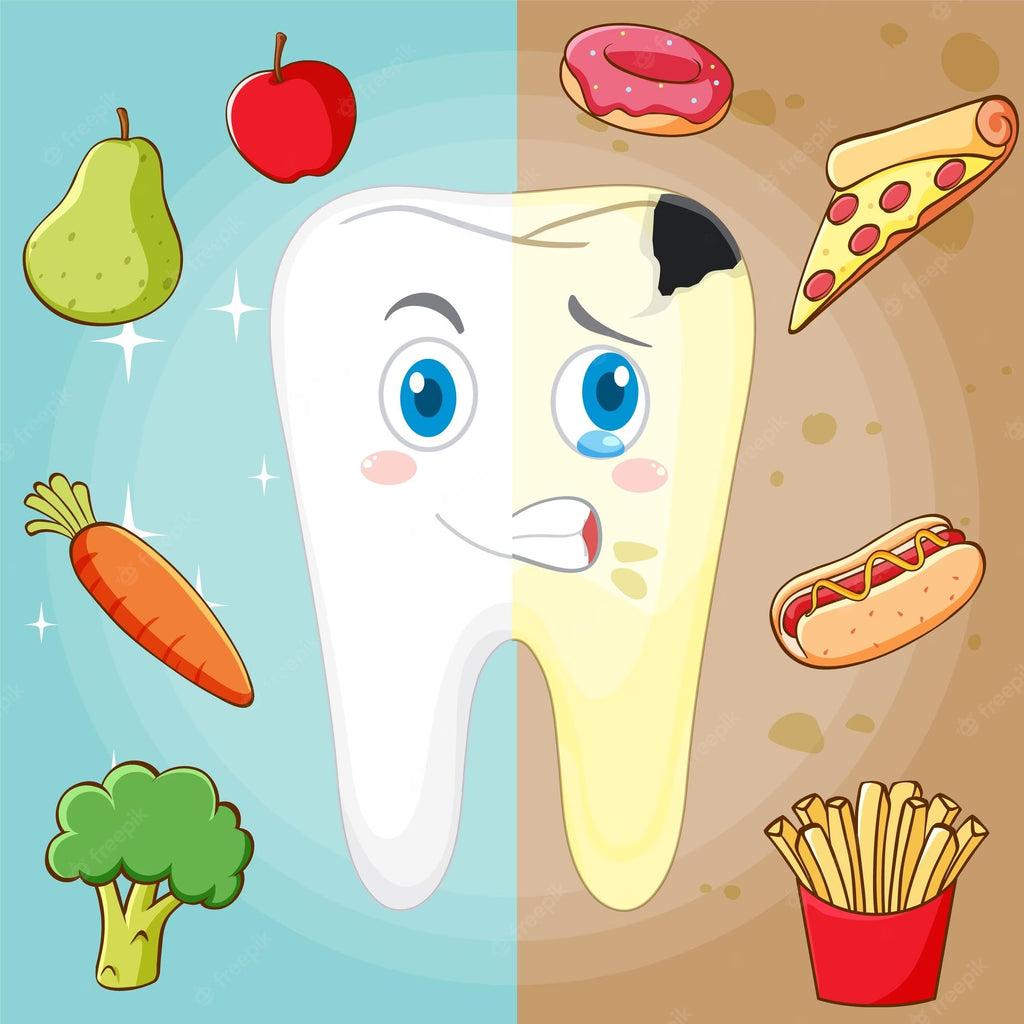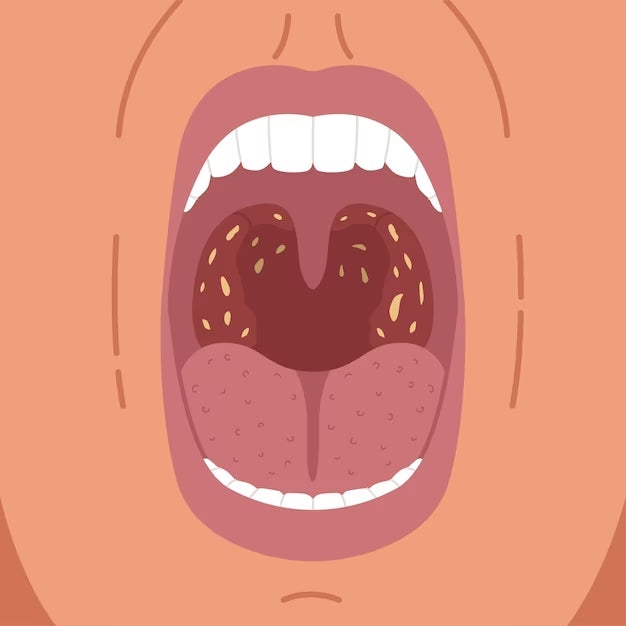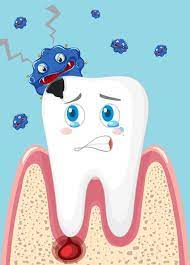The Gut-Brain Axis: How Mental Health Affects Digestion and Oral Health
-
The relationship between mental health and physical well-being has been studied for many years. One area of focus that has gained attention in recent years is the connection between the gut and the brain. The gut-brain axis is a bidirectional communication network between the gastrointestinal (GI) tract and the central nervous system (CNS). This communication is facilitated by hormones, neurotransmitters, and immune signaling molecules. In this article, we explore how mental health affects digestion and oral health.
Mental Health and Digestion
Stress is a major factor that can influence the gut-brain axis. When we experience stress, the body releases cortisol, which is a hormone that can lead to inflammation in the gut. Chronic inflammation in the gut can cause a variety of digestive issues such as bloating, constipation, and diarrhea. Furthermore, stress can also impact the diversity of gut microbiota, which are the trillions of bacteria that reside in our gut. Studies have shown that individuals with anxiety and depression have an altered gut microbiome composition compared to healthy individuals. These changes can impact the gut-brain axis and contribute to the development of digestive disorders.

Mental Health and Oral Health
The connection between mental health and oral health is also well established. Stress can lead to an increase in oral health problems such as gum disease, tooth decay, and mouth sores. Furthermore, individuals with anxiety and depression may neglect their oral hygiene leading to poor oral health. The oral microbiome, which is the collection of microorganisms that live in the mouth, can also be impacted by mental health. Stress can disrupt the balance of oral microbiota and contribute to the development of oral diseases.
How to Improve the Gut-Brain Axis
Improving mental health can positively impact the gut-brain axis and improve digestion and oral health. Here are some tips to improve the gut-brain axis:
-
Exercise regularly:
Exercise has been shown to improve mental health and reduce stress levels. -
Practice mindfulness:
Mindfulness practices such as meditation and yoga can help reduce stress and improve mental health. -
Eat a healthy diet:
Eating a diet rich in fiber and fermented foods can promote a healthy gut microbiome. -
Get enough sleep:
Lack of sleep can lead to increased stress levels and negatively impact the gut-brain axis. -
Seek professional help:
If you are experiencing symptoms of anxiety or depression, seek professional help. Therapy and medication can help improve mental health and positively impact the gut-brain axis.
Conclusion
The gut-brain axis is a complex system that can be influenced by mental health. Stress and mental health disorders can negatively impact digestion and oral health. And for those looking for a quick and easy way to freshen their breath, consider trying Nude Mints, a sugar-free option. By incorporating these strategies, we can prioritize our mental and physical health and improve our quality of life.
Ready to try a sugar-free way to freshen your breath? Give Nude Mints a try! With its refreshing taste and unique formula, it's a great alternative to traditional breath mints. Click now to purchase and experience the benefits for yourself.
-
Exercise regularly:
Get the freshest news on your favorite mouth cleanser and gut freshener!
Read More
-

Halitosis: Understanding the Causes, Diagnosis, and Treatment for Fresh Breath
Halitosis, commonly known as bad breath, is a condition that affects a large number of people worldwide. It can be an embarrassing and isolating experience, but it is important to know that it is a common problem and that there are effective treatments available. In this article, we will discuss the causes, diagnosis, and treatment of halitosis. Causes of Halitosis Halitosis can have several causes, both internal and external. The most common causes include poor oral hygiene, dry mouth, certain foods and drinks, smoking, and certain medical conditions. Poor Oral Hygiene Poor oral hygiene is the most common cause of halitosis. When food particles and bacteria build up in the mouth, they can cause an unpleasant odor. Brushing and flossing...
-

Crucial Connection Between Nutrition and Oral Health: Guide for Better Dental Care
As a dental health professional, we understand the importance of maintaining good oral hygiene to prevent cavities and gum disease. Brushing twice a day and flossing daily are essential habits, but did you know that nutrition also plays a crucial role in keeping your mouth healthy? In this article, we will explore the connection between nutrition and oral health and how you can make better food choices to support your dental health. How Nutrition Affects Oral Health Your diet can impact your oral health in many ways. A diet high in sugary and acidic foods can increase the risk of tooth decay and gum disease. When you eat sugary foods, the bacteria in your mouth feed on the sugar and...
-

How to Treat Bad Breath Caused by Dry Mouth
Do you ever feel self-conscious about your breath? Do people avoid talking to you because of bad breath? Dry mouth, also known as xerostomia, can cause bad breath and make social interactions uncomfortable. In this article, we will discuss what causes dry mouth, how it leads to bad breath, and what you can do to treat it. Table of Contents What is dry mouth? Causes of dry mouth How dry mouth causes bad breath Signs and symptoms of dry mouth Diagnosis of dry mouth Treating dry mouth Home remedies for dry mouth Professional treatments for dry mouth Tips for maintaining oral hygiene Foods and drinks to avoid with dry mouth Conclusion FAQs What is dry mouth? Dry mouth occurs when...
-

The Relationship Between Diabetes and Gum Disease: Understanding the Link
Diabetes and gum disease are two conditions that may seem unrelated, but research has shown that they are actually closely linked. In fact, individuals with diabetes are more likely to develop gum disease, and those with gum disease are more likely to have difficulty controlling their blood sugar levels. This article will explore the connection between diabetes and gum disease, and provide insights on how you can reduce your risk of developing both. The Relationship Between Diabetes and Gum Disease Diabetes is a condition that affects the body's ability to produce or respond to insulin, a hormone that regulates blood sugar levels. When blood sugar levels are consistently high, it can lead to a range of health complications, including nerve...






